Mozambique: EUMAM MOZ visits Role 1 Medical Facility at Katembe
Mozambique: UN says end war with jobs, cholera & violence, climate change – Hanlon

FILE - For illustration purposes only [File photo: MMO]
- UN head says end war in Cabo Delgado by creating jobs, in a direct challenge to Nyusi
There is an “opportunity to completely change the situation in Cabo Delgado” through a joint donor effort for “development and job creation,” Myrta Kaulard, the coordinator of the United Nations (UN) in Mozambique, told press agency LUSA Friday (6 March)
It was an explicit challenge to President Filipe Nyusi’s portrayal of the war in Cabo Delgado as a military issue. “The government will not rest until order and security and social stability are restored [and] we count on the support of the international community”, Nyusi told graduates of the police academy Thursday (O Pais 6 Mar). The police are the main security force fighting the insurgents in Cabo Delgado.
Myrta Kaulard has posed a stark choice: should donors support the continuing but still unsuccessful attempt to defeat the insurgents by force, or should donors support a rapid UN-led programme to create jobs and development to take away the grievances fuelling the war?
Implicitly she recognised the reluctance of donors to give money to the government. Of the $700 mn needed for reconstruction after cyclones Idai and Kenneth, only $100 mn was made available. “Our efforts must be stronger and more united” so that the resources are used in the best way, Kaulard said. (O Pais 6 Mar) Thus she is calling for an urgent UN-led $120 mn programme which would be “a joint effort” in Cabo Delgado to deal with both the cyclone and the armed violence at the same time. “All authorities at the highest level in Mozambique must take this on as a priority”, she stressed.
The UN coordinator for Mozambique accepts there is a problem providing humanitarian aid to zones were people are being attacked. But she argues that “at present there is security in the district towns and it is very important to preserve that security”, hoping to create zones of development and humanitarian assistance as an alternative to the armed conflict.
- Cyclone victims still homeless
Over 1,300 households who had been displaced by Cyclone Idai, which struck Sofala in March 2019, are still living in tents or temporary huts and do not have proper water supplies, Prime Minister Carlos Agostinho do Rosario discovered when he visited there on 27 February.
And food is still short in cyclone affected areas. Crops were destroyed by Cyclones Idai and Kenneth so the first harvest in a year will start later this month. There was insufficient food aid to fill the gap, and the World Food Programmes has been forced to cuts its ration, since January, from 40 kg of maize or rice per family to only 20 kg. (O Pais Economico 28 Feb)
The government’s on-going economic crisis and cuts in government spending are also having an impact. In Manica, 24,000 older people who normally receive social grants have not been paid for the past four months because the province ran out of money. Some are going hungry and have been reduced to begging on the street. (DW 18 Feb)
- This is a climate change year
Climate change is expected to bring drier conditions to the south of Mozambique, while the north should have the same average amount of rain, but concentrated in intense bursts, meaning dry spells and floods. And exactly that happened in the now ending October-March season.
“Across the country, nearly 200,000 hectares of various crops and more than 150,000 farmers have been affected by the combination of heavy rains, localized floods and drought during the current season. In the provinces of Cabo Delgado, Nampula, Zambézia and Sofala, excessive rainfall associated with floods since mid-December 2019 has caused total or partial loss of more than 32,000 hectares of maize, beans and peanuts. In contrast, drought conditions in the southern zone affected more than 160,000 hectares in Gaza, Inhambane and Maputo. In the drought stricken southern region, the heavy rainfall in February arrived too late for additional planting,” FEWS (Famine Early Warning System) reported in February. https://fews.net/southern-africa/mozambique FEWS also stressed that maize prices are 50% higher compared to both last year and the five year average due to decreased production, which makes it harder for the poor people who buy maize as their staple food.
Flooding in northern Cabo Delgado has washed out key bridges and turned dirt roads to impassable mud, so there is little road traffic north of Pemba and Montepuez. On the N380, the only direct road from Pemba to Mocimboa da Praia, bridges over the Montepuez and Messalo rivers were washed out (south and north of Macomia town), and temporary crossings (embankments know as a “drifts”) were built , But they wash away with each flood and must be rebuilt. They are open again, but restricted to light vehicles, and there have been attacks.
The main N1 north-south road is also restricted in two places because of bridge damage. One is the bridge over the Lurio River between Namialo, Nampula and Metoro, Cabo Delgado, which remains is use, but restricted. The other is the bridge over the River Save between Inhambane and Sofala provinces, which is closed for repairs for the next year and bypassed by a temporary structure. On both, lorry weights will be restricted and only one heavy lorry at a time will be allowed on the bridge. Over the Save the temporary bridge has only one lane so there is alternating one way traffic.
Comment: Cholera again shows distrust
Cholera has spread from coastal Cabo Delgado south to Nacala-a-Velha. And with it, rumours are spreading that primary school text books, distributed free of charge by the Education Ministry, are infected with cholera and can transmit the disease. The directors of schools where a bread and butter snack is distributed to the pupils have also been accused of spreading cholera. Parents have forbidden their children to go to school and some families have fled from Nacala. Many schools in the two districts are deserted and some have closed their doors for lack of pupils. (Noticas, AIM 5 Mar)
Belief that their own leadership – in this case school heads and secretaries of Frelimo – want poor people dead has a long history in coastal Nampula and Cabo Delgado. And it has led to Red Cross and health workers being killed. Key is the reality that nothing is free, so there is a belief that if anything is being given away free (textbooks, bread and butter) there must be an ulterior motive.
Research into the phenomenon is on http://bit.ly/SerraCol.
My paper two weeks ago (http://bit.ly/CDelgadoOrigins) argues that in these coastal areas there is a long history of violence against people who are only a bit better off because people genuinely feel they are defending their own lives. This is one of the reasons some people in Cabo Delgado are willing to carry out violent attacks and chop off heads.
By Joseph Hanlon


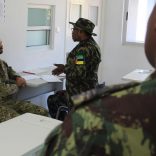

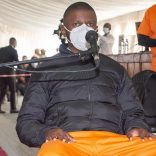
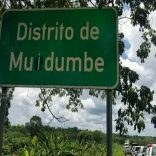
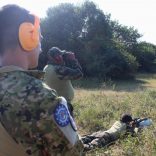
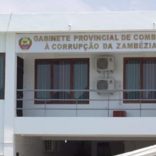




Leave a Reply
Be the First to Comment!
You must be logged in to post a comment.
You must be logged in to post a comment.